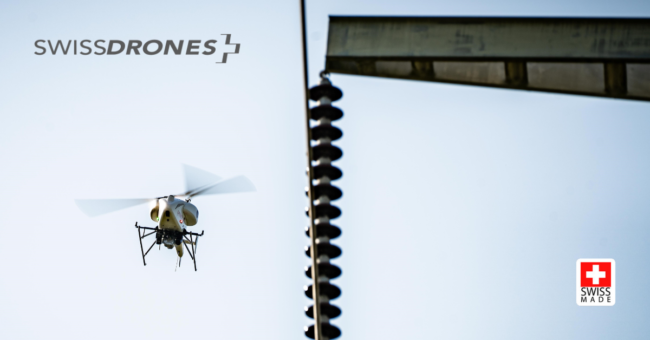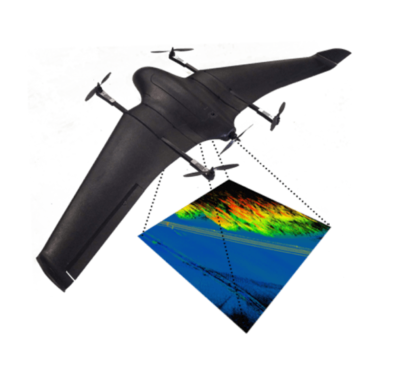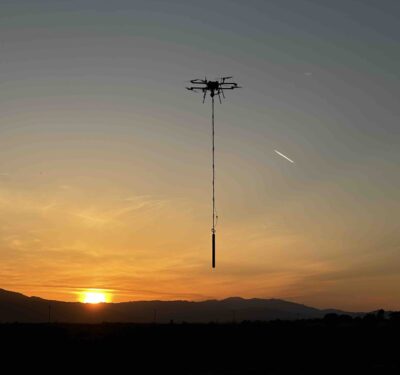First-in-kind, historic BVLOS approval enables multi-sensor, long-endurance flight operations for SDO 50 V2 uncrewed helicopters.

Zurich, Switzerland – October 24, 2023 – SwissDrones, a global manufacturer and operator of long range uncrewed helicopter systems for inspection, surveillance, and public safety applications, has announced that its SDO 50 V2 multi-mission, single-turbine uncrewed helicopter system has been granted an unprecedented FAA authorization. This authorization allows aerial service provider Phoenix Air Unmanned (PAU), partner of SwissDrones, to operate the SDO 50 V2 beyond visual line of sight (BVLOS) across the entire United States. This landmark achievement marks the first-of-its-kind authorization within the nation, empowering PAU to broaden its capabilities in inspection, patrol, and survey missions over extensive distances. Furthermore, this authorization establishes a clear regulatory pathway, setting a precedent for other organizations utilizing the SDO 50 V2 to pursue BVLOS approvals for their commercial operations.
SwissDrones and PAU collaborated over three years to build a robust concept of safe BVLOS operations (CONOPS) and conducted numerous flight trials in the United States with the SDO 50 V2. All regulatory and safety requirements were met in cooperation with the FAA to enable extended-range inspection and patrol flights over linear infrastructure under the same regulations as traditional-crewed aircraft.
“We take great pride in our partnership with Phoenix Air Unmanned, which has resulted in securing this first-in-kind BVLOS authorization in the United States,” said Ulrich Amberg, CEO of SwissDrones. “This FAA authorization not only validates the strength of our CONOPS strategy but also paves the way for other commercial operators to leverage the capabilities of our SDO 50 V2 unmanned systems, setting a precedent for expanded operations in the industry.”
Phoenix Air Unmanned (PAU) intends to use this aircraft for various data-gathering tasks, including high resolution imaging, LiDAR data collection, thermal imaging, and corona detection. Depending on the specific sensor package and operating area, inspection flights may span distances exceeding 60 miles. This enhanced capability to collect diverse datasets over long distances allows PAU to conduct multiple inspections efficiently within a single flight.
“This unprecedented authorization empowers us to conduct BVLOS operations for utilities nationwide,” stated Will Lovett, Managing Director of Phoenix Air Unmanned. “The SwissDrones SDO 50 V2 represents a game-changing advancement for our operations and clients in the Utility and Energy space, providing advanced sensor packages and an endurance capacity far surpassing what was previously available in the commercial market. It offers a safer, more efficient, and cost-effective alternative to traditional infrastructure inspection methods.”
The SDO 50 V2, with its maximum weight of 191 pounds, can carry sensors weighing between 30 and 70 pounds and maintain flights lasting over three hours. This extended endurance makes it ideal for missions requiring multiple sensors. It marks a significant performance boost, offering nearly ten times the endurance and three times the lift capacity compared to aircraft weighing under 55 pounds that operate under Part 107 waivers, allowing BVLOS inspections.
SwissDrones collaborates with civil aviation authorities worldwide to expand its operational capabilities and secure regulatory approvals and flight authorizations. These efforts aim to facilitate enhanced mission-specific operations to serve our valued customers better. In addition to securing the groundbreaking FAA BVOS authorization, the SDO 50 V2 has received a Special Airworthiness Certificate (SAC-EC) from the FAA. Furthermore, SwissDrones is among the first organizations to obtain a European drone operator license, the European Union Aviation Safety Agency (EASA) Light UAS Operator Certificate (LUC). This certificate grants SwissDrones the authority to self-authorize flight operations for its aircraft across EASA countries, encompassing BVLOS operations within the specified certificate limits. Additional regulatory approvals from civil aviation authorities worldwide will be announced in the coming months.






